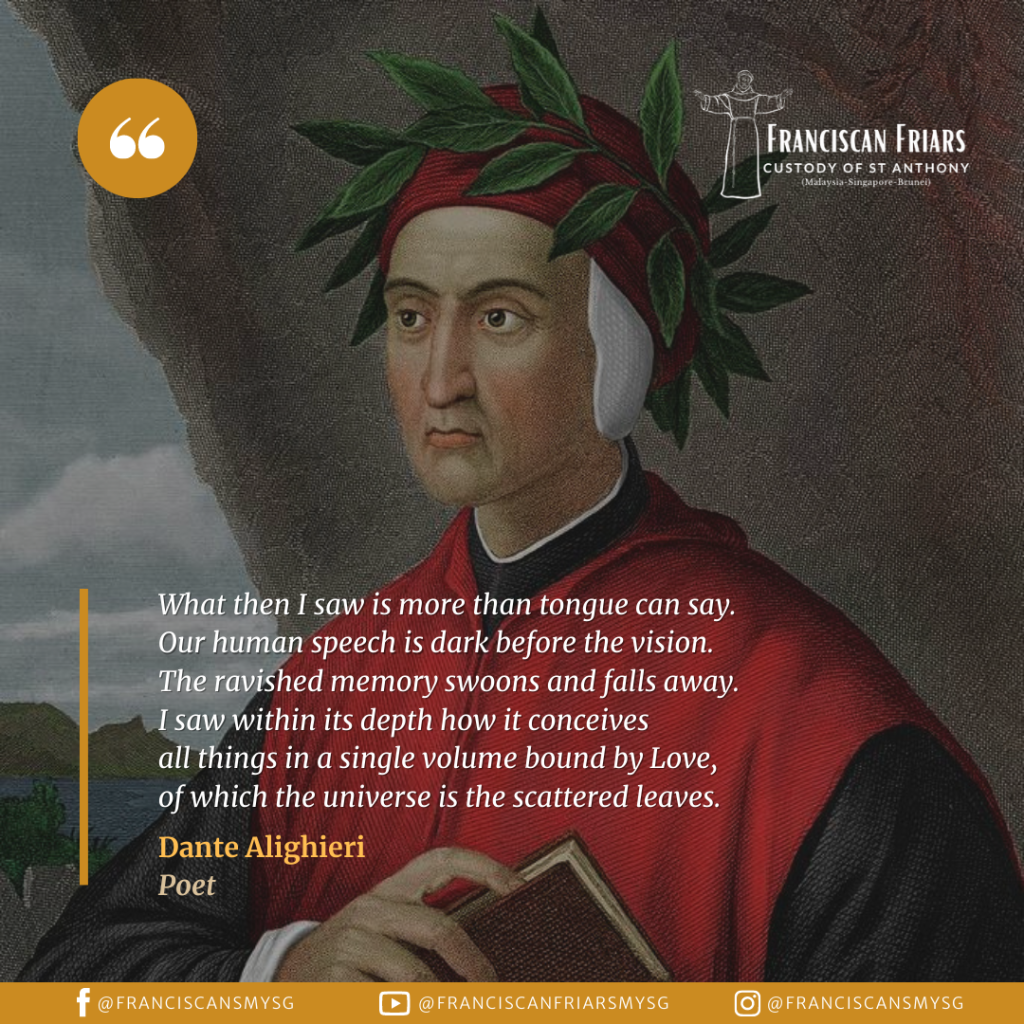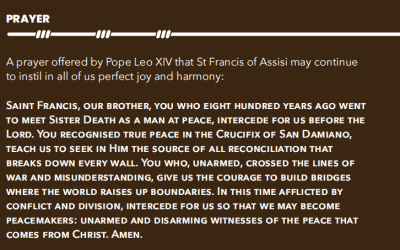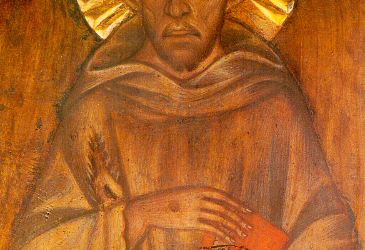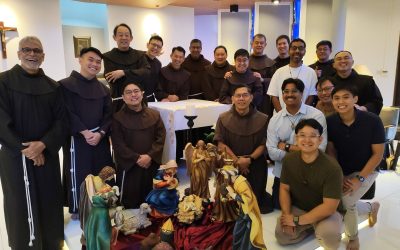
Dante Alighieri, one of the great literary geniuses of all time, was also a man of action, committed to social justice and the affairs of his native Florence. But he was at the same time a man of deep faith, a visionary and a prophet, who judged the world and the Church by the light of the Gospel and the radiance of eternity. All these factors combined in The Divine Comedy to create an artistic, as well as spiritual, masterpiece.
Florence in Dante’s time was bitterly divided between rival factions, one favoring the temporal power of the pope and the other committed to the autonomy of the city. Influenced by the radical Spiritual Franciscans, Dante opposed the papal claims to temporal power – particularly the worldly statecraft of the reigning pontiff, Boniface VIII – and urged a return to the evangelical ideas of poverty and simplicity. When the political tide turned against him, he was forced to flee Florence. His enemies invented charges of corruption and he was sentenced, in absentia, to be burned at the stake should he ever return. As a result, he spent the last twenty years of his life in exile. As he later wrote, “I have been truly a ship without sail or rudder, carried to many ports and straits and shores by the dry wind blown by grievous poverty.”
In these years, Dante wrote his Divine Comedy, the record of an imaginative pilgrimage from the depths of hell, up the mount of purgatory, and finally to the ethereal rapture of paradise. The poet’s journey involves his own progressive conversion, preparing him to endure the increasingly rarefied atmosphere along his spiritual path until he is drawn into the presence of “the love that moves the Sun and the other stars.”
There is conflicting evidence about whether Dante himself was a member of the Third Order of St. Francis. There is no doubt that his spiritual vision was deeply shaped by the Franciscan movement. St. Francis himself makes a significant appearance in Paradiso, the third volume of the Comedy, where he models the poverty and humility that Dante, the pilgrim, must learn to adopt. (Dante also contrasts the saintliness of Francis with the corruption and compromises that, he believed, had overtaken his order.)
Dante died in Ravenna in 1321, far from the city he loved. He was buried in the Franciscan church.
Source : The Franciscan Saints (Franciscan Media)





0 Comments